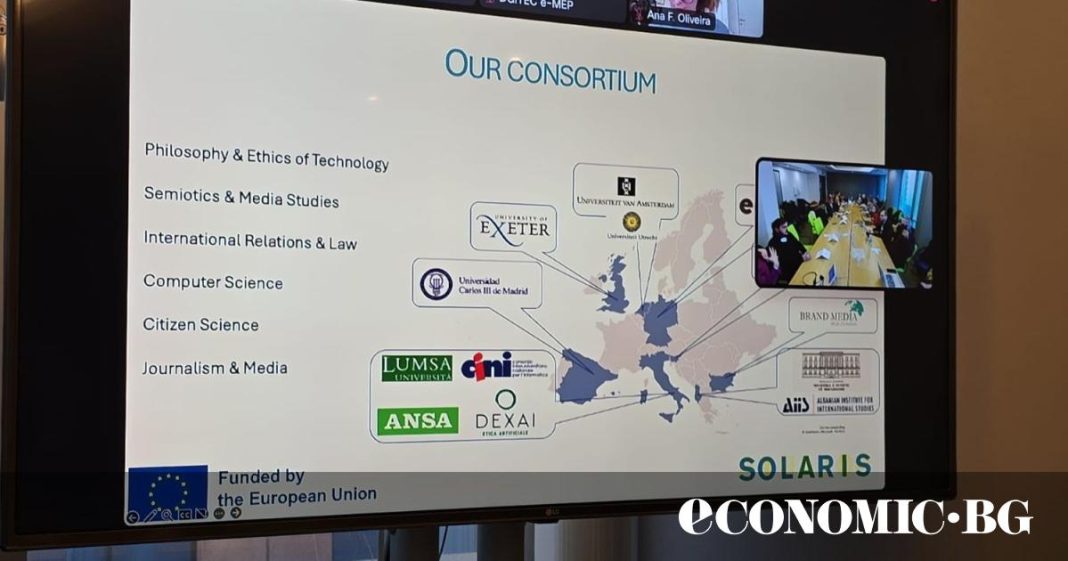The Artificial Intelligence Act (AI Act) promotes AI literacy in all possible ways, but it is only the first step. This was stated by S&D MEP Brando Benifei during the discussion „AI Literacy in the Places of Good Health and Well-Being“, which took place in the European Parliament.
The event, hosted by the Italian news agency ANSA and the Utrecht University in the Netherlands, is a part of the research activities under the SOLARIS project.
“Brand Media Bulgaria”, publisher of the economic news website Economic.bg, is a part of the 12 members under the SOLARIS project and the sole representor of Bulgaria. Economic.bg is a media partner of the project.
The AI Act is pushing in increasing AI literacy in all ways possible, but in fact it is only an address that is being indicated – it is not able to pursue literacy, it needs further actions – both at legislative and budgetary, policy, both at European and national level, and we are at the early stages on this”, Benifei commented.
He explained that the so-called deepfakes (fabricated video or audio-visual content) are becoming better and better as tools for deception.
Considering the fact that today people can believe things that are false, we can at least give them a transparency tool (AI Act), so they know that something is AI generated or manipulated“, the MEP added.
He gave an example that in this way EU citizens will at least know that if they come across a video in which a foreign minister or prime minister encourages the purchase of cryptocurrencies, this video is probably fake. “Efforts to promote literacy are key, so I think what you’re doing is very valuable”, Benifei shared.
We’re not here to “demonize” technology and say it’s bad, but to show what it can do for democratic processes and that it can also be used for good”, prof. Federica Russo, coordinator of the SOLARIS project, added.
In her speech, she presented the history of the project, which began three years ago when the topic was niche, but has exploded in social media and usage in the following years.
At first, we thought that deepfakes were something funny and that we had time before we started to worry, but that wasn’t the case,” said Russo.
She explained that in the first part of the project, efforts were focused on establishing the process of creating a deepfake.
The quality of deepfake content has become very high in a short time,” the professor warned.
She explained that behind every fake video is a whole system of creator, distributor, target, audience and discussions.
The next part of the project will focus on the distribution of such content and ways to prevent it.
We are trying to understand what is happening in this part of the network, what measures are in place to block the distribution, as well as what measures are in place to stop something that has already been distributed,” added Russo.
In its third research and workshops, the SOLARIS team will seek answers to questions such as what citizens consider to be positive AI content or content that contains positive messages.
About SOLARIS
The SOLARIS research project, funded by Horizon Europe, aims to address the challenges posed by generative AI technologies by fostering international cooperation and developing frameworks for AI governance, democratic resilience, and security.
This project is funded by the European Union. Views and opinions expressed are however those of the author(s) only and do not necessarily reflect those of the European Union or European Research Executive Agency (REA). Neither the European Union nor the granting authority can be held responsible for them.
Източник: Economic.bg


